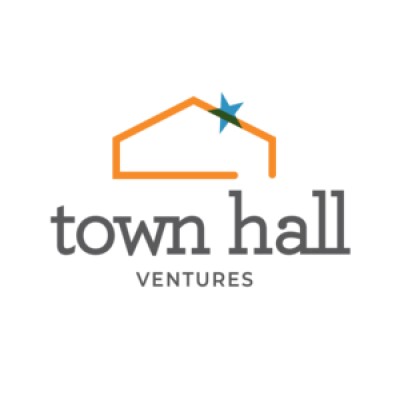Marble Health Secures $15.5 Million to Revolutionize Youth Mental Health in Schools
October 16, 2025, 9:35 pm
Marble Health secured $15.5 million in Series A funding. This investment propels its mission to transform youth mental healthcare access. The company partners directly with schools, delivering vital therapy to students nationwide. Its innovative platform reduces administrative burdens for clinicians, ensuring more children receive timely, evidence-based care. By integrating with Medicaid and commercial payers, Marble provides these essential services at no cost to schools. This expansion is critical. It directly addresses the severe national youth mental health crisis, aiming for wider reach and improved student outcomes across the U.S. This effort promises a significant impact on underserved populations.
The youth mental health crisis escalates. Rates of anxiety, depression, and social withdrawal soar. One in ten teens attempted suicide last year. These statistics paint a grim picture. Many families face severe barriers to care. Nearly half of American youth rely on Medicaid. Waitlists at community clinics stretch for months, sometimes years. School counselors, often first responders, are overwhelmed. Average caseloads exceed 380 students per counselor. Support is critically scarce. The system is failing its youngest.
Marble Health directly tackles this systemic failure. The company announced $15.5 million in Series A funding. This capital injection accelerates its crucial work. Costanoa Ventures led the investment round. Town Hall Ventures and Khosla Ventures also participated. This significant funding will expand Marble’s operations nationwide. It will grow the team. It will advance the technology platform. The goal is clear: close critical gaps in youth mental healthcare.
Marble’s model is innovative. It embeds directly within school systems. Founders Jake Sussman and Dan Ross previously co-founded Headway. They built Marble to eliminate waiting for help. The company partners with schools to identify students needing support. It then connects them with licensed therapists. This provides immediate, accessible care. Schools receive these services at no cost. Marble collaborates with both Medicaid and commercial payers. This ensures equitable access to evidence-based therapy.
The company’s approach is essential. It removes financial barriers for schools. It brings therapy directly to where students spend most of their time. This school-based model eliminates many traditional hurdles. Families often struggle to find therapists. They face complex insurance navigation. Marble streamlines this process for all. It makes quality mental healthcare a reality for many.
Technology forms the backbone of Marble’s solution. Its platform significantly reduces administrative burdens. Clinicians often hesitate to participate in Medicaid networks. Paperwork and efficiency issues deter them. Marble addresses these challenges head-on. AI-powered tools are integral. An automated scribe simplifies documentation. A proprietary electronic health record (EHR) platform boosts efficiency. These tools free therapists. They allow more time for patient care. They enable wider participation in Medicaid networks. This directly expands access to underserved populations.
Collaboration is another key feature. Marble’s platform integrates real-time communication. Therapists, school counselors, and parents work together. This creates a unified ecosystem of support. Every student benefits from coordinated care. Insights are shared seamlessly. Progress is monitored collectively. This holistic approach strengthens outcomes. It builds a robust support network around each child.
Marble also maximizes therapist capacity. Group therapy programs are central to its strategy. These programs allow clinicians to support more students. Quality of care remains paramount. This scalable solution helps meet the growing demand. It ensures more students receive the help they need. The company focuses on efficiency without compromise.
Since its New York launch, Marble has made a substantial impact. It facilitated over 15,000 therapy sessions. These sessions reached children and families. Many would have gone without care otherwise. This demonstrates the model's effectiveness. It proves the urgent need for such services. The initial success provides a blueprint for national expansion.
The Series A funding will accelerate this national rollout. Marble plans to reach more school districts. It will strengthen partnerships with public and private payers. The company is also building a data-driven foundation. This foundation will enhance the precision of its clinical products. Insights from schools, therapists, and families will be combined. This continuous feedback loop will refine programs. It will improve student outcomes consistently.
Marble Health represents a vital modernization. It builds infrastructure for a new system. This system is designed for youth mental health. It targets systemic barriers. It reaches children and adolescents needing timely, affordable care. The company’s growth promises widespread transformation. It offers hope for countless students. It provides essential support to overwhelmed school systems. The future of youth mental health is being redefined, one school at a time.
The youth mental health crisis escalates. Rates of anxiety, depression, and social withdrawal soar. One in ten teens attempted suicide last year. These statistics paint a grim picture. Many families face severe barriers to care. Nearly half of American youth rely on Medicaid. Waitlists at community clinics stretch for months, sometimes years. School counselors, often first responders, are overwhelmed. Average caseloads exceed 380 students per counselor. Support is critically scarce. The system is failing its youngest.
Marble Health directly tackles this systemic failure. The company announced $15.5 million in Series A funding. This capital injection accelerates its crucial work. Costanoa Ventures led the investment round. Town Hall Ventures and Khosla Ventures also participated. This significant funding will expand Marble’s operations nationwide. It will grow the team. It will advance the technology platform. The goal is clear: close critical gaps in youth mental healthcare.
Marble’s model is innovative. It embeds directly within school systems. Founders Jake Sussman and Dan Ross previously co-founded Headway. They built Marble to eliminate waiting for help. The company partners with schools to identify students needing support. It then connects them with licensed therapists. This provides immediate, accessible care. Schools receive these services at no cost. Marble collaborates with both Medicaid and commercial payers. This ensures equitable access to evidence-based therapy.
The company’s approach is essential. It removes financial barriers for schools. It brings therapy directly to where students spend most of their time. This school-based model eliminates many traditional hurdles. Families often struggle to find therapists. They face complex insurance navigation. Marble streamlines this process for all. It makes quality mental healthcare a reality for many.
Technology forms the backbone of Marble’s solution. Its platform significantly reduces administrative burdens. Clinicians often hesitate to participate in Medicaid networks. Paperwork and efficiency issues deter them. Marble addresses these challenges head-on. AI-powered tools are integral. An automated scribe simplifies documentation. A proprietary electronic health record (EHR) platform boosts efficiency. These tools free therapists. They allow more time for patient care. They enable wider participation in Medicaid networks. This directly expands access to underserved populations.
Collaboration is another key feature. Marble’s platform integrates real-time communication. Therapists, school counselors, and parents work together. This creates a unified ecosystem of support. Every student benefits from coordinated care. Insights are shared seamlessly. Progress is monitored collectively. This holistic approach strengthens outcomes. It builds a robust support network around each child.
Marble also maximizes therapist capacity. Group therapy programs are central to its strategy. These programs allow clinicians to support more students. Quality of care remains paramount. This scalable solution helps meet the growing demand. It ensures more students receive the help they need. The company focuses on efficiency without compromise.
Since its New York launch, Marble has made a substantial impact. It facilitated over 15,000 therapy sessions. These sessions reached children and families. Many would have gone without care otherwise. This demonstrates the model's effectiveness. It proves the urgent need for such services. The initial success provides a blueprint for national expansion.
The Series A funding will accelerate this national rollout. Marble plans to reach more school districts. It will strengthen partnerships with public and private payers. The company is also building a data-driven foundation. This foundation will enhance the precision of its clinical products. Insights from schools, therapists, and families will be combined. This continuous feedback loop will refine programs. It will improve student outcomes consistently.
Marble Health represents a vital modernization. It builds infrastructure for a new system. This system is designed for youth mental health. It targets systemic barriers. It reaches children and adolescents needing timely, affordable care. The company’s growth promises widespread transformation. It offers hope for countless students. It provides essential support to overwhelmed school systems. The future of youth mental health is being redefined, one school at a time.



